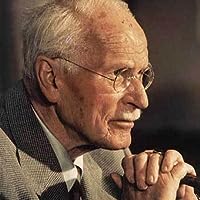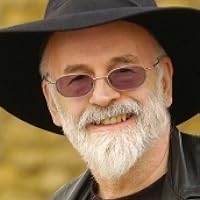Jungian Psychology Quotes
Quotes tagged as "jungian-psychology"
Showing 1-30 of 43

“...it is almost always the case that whatever has wounded you will also be instrumental in your healing.”
― She: Understanding Feminine Psychology
― She: Understanding Feminine Psychology

“How many of those who are insecure seek power over others as a compensation for inadequacy and wind up bringing consequences down upon their heads and those around them? How many hide out in their lives, resist the summons to show up, or live fugitive lives, jealous, projecting onto others, and then wonder why nothing ever really feels quite right. How many proffer compliance with the other, buying peace at the price of soul, and wind up with neither?”
― Hauntings: Dispelling the Ghosts Who Run Our Lives
― Hauntings: Dispelling the Ghosts Who Run Our Lives

“I've seen women insist on cleaning everything in the house before they could sit down to write... and you know it's a funny thing about house cleaning... it never comes to an end. Perfect way to stop a woman.”
― Women Who Run With the Wolves
― Women Who Run With the Wolves

“Only by sacrificing what we have can we know what we have. Real sacrifice is made with the same definiteness and lack of bargaining that is involved in throwing something away We can do this only if we are forced by a greater power in us - a power stronger than the ego - that gives us the necessary strength. We experience this power as an inner imperative that tells us that we "must." In Jungian psychology we understand that as a message from the Self, the regulating center of the pysche. The sacrificer and what is sacrificed are one and the same: it is always the Self.”
― Animus and Anima in Fairy Tales
― Animus and Anima in Fairy Tales

“Like an exploding cannonball, he was blasted out of his body – feet forward, arms clutching at his sides – through a tunnel of cold, midnight sky. Mario’s human instinct told him screaming was appropriate, and yet some other side of him was in transcendental awe.”
― The Underworld Rhapsody
― The Underworld Rhapsody

“It is only through an altered state of consciousness that a lesser being can see into the invisible and the immaterial. In our understanding, middling, certain substances are known to alter the manner a choice has been made. Some drugs will make one decide things one normally would not.’
‘And choices are our domain,’ explained another Master. ‘The fabric of reality is stringed together by the unseen Threads of choice and consequence. As actors, storytellers and audience of reality, we cannot afford reality to unwire.”
― The Underworld Rhapsody
‘And choices are our domain,’ explained another Master. ‘The fabric of reality is stringed together by the unseen Threads of choice and consequence. As actors, storytellers and audience of reality, we cannot afford reality to unwire.”
― The Underworld Rhapsody

“Physical death is only one form of dying. There are other forms of dying:
We die whenever fear governs our choices.
We die when we sacrifice growth for security.
We die whenever we choose a convenient certainty over an inconvenient mystery.”
― A Life of Meaning: Exploring Our Deepest Questions and Motivations
We die whenever fear governs our choices.
We die when we sacrifice growth for security.
We die whenever we choose a convenient certainty over an inconvenient mystery.”
― A Life of Meaning: Exploring Our Deepest Questions and Motivations

“Non foras ire, in interiore homine habitat veritas' (Go not outside; truth dwells in the inner man).”
―
―

“Unfortunately there is no doubt about the fact that man is, as a whole, less good than he imagines himself or wants to be. Everyone carries a shadow, and the less it is embodied in the individual's conscious life, the blacker and denser it is.”
―
―

“In order to free the fiction of the sovereign State – in other words, the whims of those who manipulate it – from every wholesome restriction, all sociopolitical movements tending in this direction invariably try to cut the ground from under the religions. For, in order to turn the individual into a function of the State, his dependence on anything beside the State must be taken from him.”
― The Undiscovered Self
― The Undiscovered Self
“The Shadow Archetype is the dark side of the psyche, the dark side of the “force”, representing wildness, chaos, the irrational, the unknown, the intoxicated, the out-of-control … all things Dionysian. Dionysus is the Shadow of Apollo. The Id is the Shadow of the Superego. If you want to have a healthy psyche, you must accommodate your Shadow, one way or another. You must have a Shadow space, where that energy can be explored, harnessed and sublimated.”
― Fusions Versus Fissions: Are You a Joiner or a Splitter?
― Fusions Versus Fissions: Are You a Joiner or a Splitter?

“Without a shadow of a doubt, the first fiction ever recounted was fantasy. Guys sitting around the campfire— Was it you who wrote the review? I thought I recognized it— Guys sitting around the campfire telling each other stories about the gods who made lightning, and stuff like that. They did not tell one another literary stories. They did not complain about difficulties of male menopause while being a junior lecturer on some midwestern college campus. Fantasy is without a shadow of a doubt the ur-literature, the spring from which all other literature has flown. Up to a few hundred years ago no one would have disagreed with this, because most stories were, in some sense, fantasy. Back in the middle ages, people wouldn’t have thought twice about bringing in Death as a character who would have a role to play in the story. Echoes of this can be seen in Pilgrim’s Progress, for example, which hark back to a much earlier type of storytelling. The epic of Gilgamesh is one of the earliest works of literature, and by the standard we would apply now— a big muscular guys with swords and certain godlike connections— That’s fantasy. The national literature of Finland, the Kalevala. Beowulf in England. I cannot pronounce Bahaghvad-Gita but the Indian one, you know what I mean. The national literature, the one that underpins everything else, is by the standards that we apply now, a work of fantasy.
Now I don’t know what you’d consider the national literature of America, but if the words Moby Dick are inching their way towards this conversation, whatever else it was, it was also a work of fantasy. Fantasy is kind of a plasma in which other things can be carried. I don’t think this is a ghetto. This is, fantasy is, almost a sea in which other genres swim. Now it may be that there has developed in the last couple of hundred years a subset of fantasy which merely uses a different icongraphy, and that is, if you like, the serious literature, the Booker Prize contender. Fantasy can be serious literature. Fantasy has often been serious literature. You have to fairly dense to think that Gulliver’s Travels is only a story about a guy having a real fun time among big people and little people and horses and stuff like that. What the book was about was something else. Fantasy can carry quite a serious burden, and so can humor. So what you’re saying is, strip away the trolls and the dwarves and things and put everyone into modern dress, get them to agonize a bit, mention Virginia Woolf a few times, and there! Hey! I’ve got a serious novel. But you don’t actually have to do that.”
―
Now I don’t know what you’d consider the national literature of America, but if the words Moby Dick are inching their way towards this conversation, whatever else it was, it was also a work of fantasy. Fantasy is kind of a plasma in which other things can be carried. I don’t think this is a ghetto. This is, fantasy is, almost a sea in which other genres swim. Now it may be that there has developed in the last couple of hundred years a subset of fantasy which merely uses a different icongraphy, and that is, if you like, the serious literature, the Booker Prize contender. Fantasy can be serious literature. Fantasy has often been serious literature. You have to fairly dense to think that Gulliver’s Travels is only a story about a guy having a real fun time among big people and little people and horses and stuff like that. What the book was about was something else. Fantasy can carry quite a serious burden, and so can humor. So what you’re saying is, strip away the trolls and the dwarves and things and put everyone into modern dress, get them to agonize a bit, mention Virginia Woolf a few times, and there! Hey! I’ve got a serious novel. But you don’t actually have to do that.”
―

“This lowly activity is also a kind of compensation to persuade the woman to become feminine again. The effect of animus pressure can lead a woman to deeper femininity, providing she accepts the fact that she is animus-possessed and does something to bring her animus into reality. If she gives him a field of action- that is, if she takes up some special study or does some masculine work- this can occupy the animus, and at the same time her feeling will be vivified and she will come back to feminine activities. The worst condition comes about when a woman has a powerful animus, and does not even live it; then she is straightjacketed by animus opinions, and while she may avoid any sort of work that seems in the least masculine, she is much less feminine.”
― The Interpretation of Fairy Tales: Revised Edition
― The Interpretation of Fairy Tales: Revised Edition

“The animus awakens passion in a woman. His plans, purposes and whims stir up self-doubt within her and caused her to drag her feminine, passive nature out into the world and to expose herself to the resistance of the outer world. Then, when a woman has been successful in a man's world, it means acute suffering to narrow down the scope of her activities, or to give them up altogether, in order to become more feminine again.”
― The Interpretation of Fairy Tales: Revised Edition
― The Interpretation of Fairy Tales: Revised Edition
“Intuition brings us a sense of the ecology of integrity, for intuition is the function that gives a feeling for the entire pattern operating in a given moment.”
― Integrity in Depth
― Integrity in Depth

“We create Hollywood and Disneyland to carry our projections of greatness. But as a society we are putting ourselves at risk in this process, for a celebrity may not be a true hero. As the great mythologist Joseph Campbell once pointed out, the celebrity lives only for his or her own ego, while the hero acts to redeem society. We have many celebrities but few true heroes these days. Modern Westerners have evolved psychologically to the point where we are placing our gold on living beings rather than dead bones, as was done in medieval times, but it remains to be seen whether we can learn to carry our own gold and find heaven within instead of without.”
― Balancing Heaven and Earth: A Memoir of Visions, Dreams, and Realizations
― Balancing Heaven and Earth: A Memoir of Visions, Dreams, and Realizations

“This had led many people, above all theologians, to the mistake of thinking that with his concept of the Self Jung wanted to give God himself a name, although time and again in his writings he has emphasized that his statements about the Self refer only to the manifestation of the God-image and of the God-concept in the human psyche. "At all events," Jung says, "the soul must contain in itself the faculty of relationship to God, i.e., a correspondence, otherwise a connection could never come about. This correspondence is, in psychological terms, the archetype of the God-image. Since God-images are the products of religious fantasy they are unavoidably anthropomorphic and therefore, like every symbol, capable of psychological elucidation. But psychology can make no statements about the nature of God. On the other hand, it can very well observe and describe the phenomenology of his "reflection" in the human psyche, and explore it scientifically.”
― The Way of Individuation
― The Way of Individuation

“In other words, no 'tough' natal planetary configuration is a symbol of adverse fate in one's life, simply because the individual is born under specific astrological conditions which are necessary for their unique inner and outer development.”
―
―

“For Jung, the collective unconscious can simply be described as an envelope of wisdom embracing everything in creation, humans included. For Jung, it is essentially of God and may well be considered as the wise and enduring power of divine Spirit infused throughout the whole of creation….Long dismissed as an esoteric illusive fantasy, the collective unconscious begins to look very similar to the notion of the creative vacuum of pure space, or modern physics.”
― Ancestral Grace: Meeting God in Our Human Story
― Ancestral Grace: Meeting God in Our Human Story

“We should understand that dream symbols are for the most part manifestations of a psyche that is beyond the control of the conscious mind. Meaning and purposefulness are not the prerogatives of the mind; they operate in the whole of living nature. There is no difference in principle between organic and psychic growth. As a plant produces its flower, so the psyche creates its symbols. Every dream is evidence of this process.”
― Man and His Symbols: A Popular Presentation of the Essential Ideas of Jungian Psychology with Over 500 Illustrations
― Man and His Symbols: A Popular Presentation of the Essential Ideas of Jungian Psychology with Over 500 Illustrations

“It is the fear of the boundless that often leads one to be content with the ego limits one has rather than risk falling into the infinite by attempting to enlarge them.”
― Anatomy of the Psyche: Alchemical Symbolism in Psychotherapy
― Anatomy of the Psyche: Alchemical Symbolism in Psychotherapy

“One of the essential features of the Christian myth and the teaching of Jesus is the attitude taken toward weakness and suffering. A real transvaluation of ordinary values is brought about. Strength, power, fullness and success, the usual conscious values, are denied. Instead, weakness, suffering, poverty, and failure are given special dignity. This point is developed throughout Jesus’ teachings and is given its supreme representation in the crucifixion itself where God is degradingly scourged and dies the shameful death of a criminal on the cross. This is what was beyond the comprehension of the Romans, for whom, honor, strength, and manly virtue were the supreme values. Psychologically understood, we have here, I think, a clash between the goals and values of two different phases of ego development. Preoccupation with personal honor and strength and the despising of weakness is inevitable and necessary in the early stages of ego development. The ego must learn to assert itself in order to come into existence at all. Hence the Christian myth has little place in the psychology of the young.”
― Ego and Archetype: Individuation and the Religious Function of the Psyche
― Ego and Archetype: Individuation and the Religious Function of the Psyche

“In the clutches of the animus, no woman is able to give up whatever power she may have, or her conviction that it is right and necessary and valuable. The convictions a woman has lived by spring from inferior masculine thinking; the less she herself is able to evaluate them, the more passionately she clings to them. This is a reason for the persistence of the animus possession. Unfortunately such a woman never thinks that anything could be wrong with herself and is convinced that the fault lies with others.”
― The Interpretation of Fairy Tales: Revised Edition
― The Interpretation of Fairy Tales: Revised Edition
“Einstein was a spiritual person who believed in God. It was his scientific exploration that opened his mind to the numinosum. His great insights show us that science and religion are not contradictory stances, but complementary, and when they are combined this can produce higher synergies. Jung and Einstein are examples of this possibility. Though science and religion each have their limitations, they can mutually enrich each other.”
―
―

“Aphrodite's mirror is symbolic of a most profound quality of the goddess of love. She frequently offers one a mirror by which one can see one's self, a self hopelessly stuck in projection without the help of the mirror. Asking what is being mirrored back can begin the process of understanding, which may prevent getting stuck in an insoluble emotional tangle. This is not to say there are not outer events. But it is important to realize and understand that many things of our own interior nature masquerade as outer events when they should be mirrored back into our subjective world from which they sprang. Aphrodite provides this mirror more often than we would like to admit. Whenever one falls in love, sees the god or goddess-like qualities in another, it is Aphrodite mirroring our immortality and divine-like qualities. We are as reluctant to see our virtues as our faults and a long period of suffering generally lies between the mirroring and the accomplishment.”
― She: Understanding Feminine Psychology
― She: Understanding Feminine Psychology

“Transform or kill? This is a critical choice, especially for a modern woman. If the knife comes first there will probably be much damage. If the lamp comes first there is a chance of intelligence and growth. If she wields her tools carefully she can bring about a miracle of transformation-nothing less than the showing forth of the god, Eros in his true light. She can be justly pleased that her light produced the miracle. Much of a man's mute yearning for a woman is his need for her light to show him-as well as her-his true nature and godhood. Every woman holds this terrible-wonderful power in her hands.”
― She: Understanding Feminine Psychology
― She: Understanding Feminine Psychology

“The deepest interior mystery for a woman may not be named or given any label. It is the essence of that feminine quality which must remain a mystery, certainly to men, and hardly less so for women.
It is not less than the element of healing itself.”
― She: Understanding Feminine Psychology
It is not less than the element of healing itself.”
― She: Understanding Feminine Psychology
All Quotes
|
My Quotes
|
Add A Quote
Browse By Tag
- Love Quotes 97k
- Life Quotes 75.5k
- Inspirational Quotes 72.5k
- Humor Quotes 43.5k
- Philosophy Quotes 29.5k
- Inspirational Quotes Quotes 27k
- God Quotes 26k
- Truth Quotes 23.5k
- Wisdom Quotes 23.5k
- Romance Quotes 23k
- Poetry Quotes 22k
- Death Quotes 20k
- Happiness Quotes 18.5k
- Life Lessons Quotes 18.5k
- Hope Quotes 18k
- Faith Quotes 18k
- Quotes Quotes 16.5k
- Inspiration Quotes 16.5k
- Spirituality Quotes 15k
- Religion Quotes 15k
- Motivational Quotes 15k
- Writing Quotes 14.5k
- Relationships Quotes 14.5k
- Life Quotes Quotes 14k
- Love Quotes Quotes 13.5k
- Success Quotes 13.5k
- Time Quotes 12.5k
- Motivation Quotes 12k
- Science Quotes 11.5k
- Knowledge Quotes 11k


